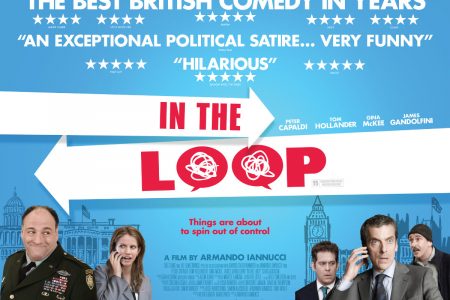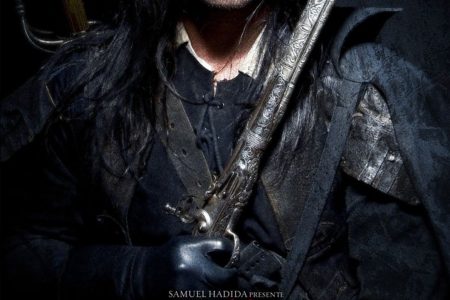I might be sharing too much here, but I’ve always loved the idea of ‘psychic’ powers – telepathy and telekinesis in particular – which is probably one of the reasons I enjoyed Chris Claremont’s Uncanny X-Men so much growing up. The ability to do things with the power of the mind alone appeals to me more than the normal super powers of flight, strength, invisibility, etc. I even had an entire run of Psi-Force, the New Universe title from Marvel that was about people with psionic powers (I think that might be where I first saw the ‘TK punch’, something I’ll come back to). This is why I wanted to watch Push, a film all about people with psychic powers.
Push starts with a huge info dump to get us up to speed on the world of Push: narrated by Cassie (Dakota Fanning), we are told that those with powers have been around for a while, experimented on since the end of the second world war by the US government, specifically by ‘Division’, who are trying to hunt down those with powers and work on a drug that will amplify their abilities (although why is never really mentioned). There are lots of cute names for the different types of powers – movers are telekinetics, watchers are psychics, pushers can put thoughts in your head (although pusher seems more descriptive of what telekinetics can do, but what do I know) – and the film is set ‘2 days from now’.
Set in Hong Kong, Nick (Chris Evans) is a mover who saw his dad, another mover, killed when he was 10 years old by a pusher in the Division (Djimon Hounsou). He avoids contact with the psychically powered, living a life where he can’t be traced by the Division’s watchers, until Cassie enters his life, as predicted by someone who told his father it would happen, who he must help in her quest as requested by his father. This will involve being chased by the local Triad who are run by powered people bred by the defunct Chinese Division (some of who have the ability to make people bleed by screaming very loudly – not what you’d call a useful or subtle power, or particularly useful) and interacting with other people with abilities (shifters, who can change the shape of physical objects, if only for a short time; sniffers, who can psychically trace people from objects they have touched; stitchers, who can heal people; shades, who can hide people from watchers) in Hong Kong, who are living outside the system. It will also involve set pieces that focus on the movers – telekinesis is very cinematic after all, and they even use TK punches on each other, using their power to increase their physical actions.
This is a film with a lot of potential that doesn’t extract that potential and maximising on it. There are several reasons for this: firstly, there is no real focus behind the story. The Division doesn’t have a clear goal – why do they want to increase their strengths? Why do they exist? Why do they allow people who used to work for them live, but kill their spouses as warnings? Why do they allow some people to live outside their control, other than keeping tabs on them? It is all counterintuitive and only exists as a powerful bad guy in the background for people to fight against.
Secondly, Paul McGuigan has made some odd choices in bringing this to screen, notably the sparse use of CGI – he has said he wanted to keep special effects to a minimum because great filmmakers did amazing things without them, not realising that the whole point of making this film now is that you are finally able to bring to screen the concepts of the comic book that are only now able to flesh out on screen because of computer imagery. If you don’t want to use what is available to make the supernormal powers believable, you are not the right person to be making this sort of film. The fights between movers are quite impressive and hint at what could have been.
McGuigan makes an interesting choice to film in Hong Kong. He talked about reflecting the idea behind Casablanca being a place where people could live outside the system, and Hong Kong was the modern equivalent. This also requires using a ‘Bourne’ ethos to filming, using handheld cameras to give that documentary vibe of being there, but you don’t get that from watching the film itself. McGuigan is not a bad filmmaker – Gangster No 1 was very good and Lucky Number Slevin was well put together (although he shouldn’t have remade L’Appartement as Wicker Park) – but he doesn’t seem completely suited to job, even if you admire his ambition.
Another problem with the film is the story itself; there are incongruities to the logic to the world that has been created. If these powers are supposed to be linked to the psychic powers investigated by the likes of the Stargate Project, why do we get such non-psychic abilities such as screaming to cause people to bleed or heal people? What about the other psychic powers, such as pyrokinesis or blowing things up with the mind? The ‘pushing’ seems simple as well – rewriting people’s memories seems to be a lot tougher than just ‘pushing’, and it also seems to be the extent of their telepathic abilities: no mind-reading or hearing peoples’ thoughts. And what is it with watchers who can see ‘intent’ to change the future before the future itself? I’m not a great fan of seeing the future as a power in stories – it opens up a can of worms and means that the writer has to come up with a really good excuse to get around this ability in order for the story to proceed. Which happens here – there is a very silly solution to this problem so that our group of heroes can carry out their plan; and, even then, surely watchers would be able to see the future they carried out anyway? It’s annoying and takes you out of the story.
Another problem are the two leads. Dakota Fanning was excellent in War of the Worlds but doesn’t seem as comfortable here as a main character, seeming awkward and out of place. Chris Evans was the charisma in the otherwise dull Fantastic Four films, and has shown his acting ability in Danny Boyle’s Sunshine, but here he is lifeless and subdued – there are a few glimpses of some of that energy in the film, but they are fleeting and the film feels empty without some of that energy. Hounsou looks good as the main villain but doesn’t really bring any menace to the role. Camilla Belle, as Kira, the girl who acts as the MacGuffin bringer to the plot, is also lifeless in her role, which is a problem when she is supposed to mean so much to Nick. Some of the supporting characters (Cliff Curtis as a shifter, Ming-Na as a sniffer) seem more at home, but even their presence in the plot seems a very weak collection of different powers required to complete the plot.
There are a few good things – like I said, there is potential for the ideas in the film. I think this would make a good comic, which could investigate the stories and characters, but I don’t think people have been talking very much about the prequel comic from DC, even if it does have some nice covers by Jock. There is some nice twisting and turning in the story due to the pushing ability (note to stupid and lazy critics: twists are good in films, it doesn’t mean it’s convoluted; if there were no plot twists, would call it boring and straightforward?). However, the film is really reaching if they think they can create a franchise out of this film, which happens with a hideously blatant open ending after the resolution of the main storyline – I hate it when films do that: I don’t mind a continuing story, but give me a satisfactory and complete narrative before you go any further. I’m disappointed more by the failure to execute the potential than I am by the unsatisfactory cinematic experience. Here’s to what could have been …
Rating: DA




